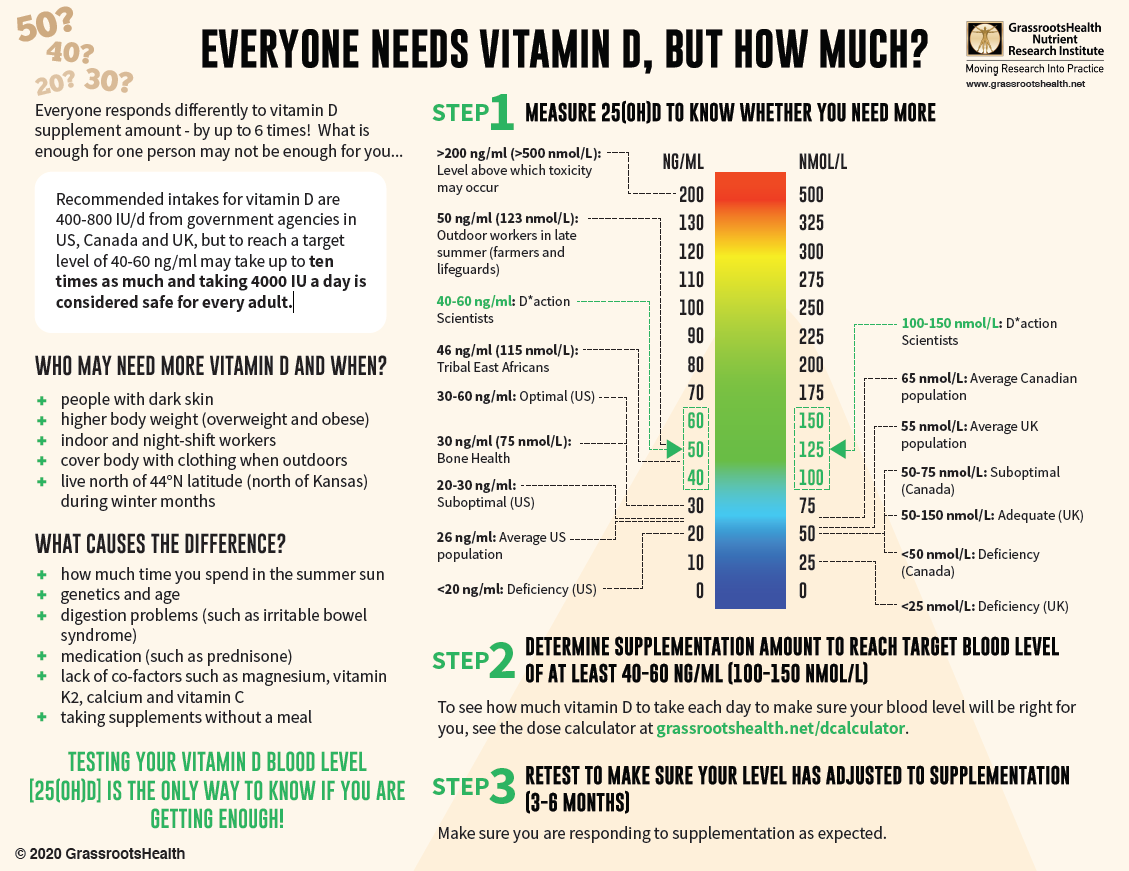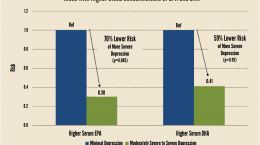Published on June 4, 2021
Video Friday: Dr. Bill Harris discusses research showing how adults and children with higher omega-3s tend to have lower levels of anxiety, depression, and have better mood
 It’s Video Friday! Today’s short video features Dr. Bill Harris as he discusses several studies showing how people who take high enough amounts of omega-3 fatty acids EPA and DHA can improve their anxiety and mood issues. In fact, those who had a higher Omega-3 Index benefitted the most.
It’s Video Friday! Today’s short video features Dr. Bill Harris as he discusses several studies showing how people who take high enough amounts of omega-3 fatty acids EPA and DHA can improve their anxiety and mood issues. In fact, those who had a higher Omega-3 Index benefitted the most.
Please take a moment to watch and share the video along with the detailed information below.
Watch the Video
After watching the video, be sure to make note of our added details below.
Higher Omega-3s Linked to Better Mental & Emotional Health
Here is a quick summary of what this video discusses, along with additional information and details about omega-3s:
- A meta-analysis by Su et al. published in JAMA combined the findings from 19 different studies on omega-3 supplements and clinical anxiety symptoms. The study found that clinical anxiety symptoms were more likely to improve among those who took omega-3 supplements compared to those taking a placebo. The greatest effect was seen for those taking at least 2,000 mg per day of omega-3 fatty acids, and whose omega-3 fatty acid intake was at least 60% EPA.
- Another recent analysis by Murphy et al. supports previous findings that omega-3s may be important for treating depression, and found that higher omega-3 levels in the blood were significantly associated with a lower risk of moderately severe to severe depression, especially for those with higher EPA specifically. (This study will be reviewed in more detail in our next newsletter.)
- Other studies have shown improvements in mood, anxiety, ADHD, bi-polar disorder, psychosis, autism, and other mental, cognitive, and emotional disorders among adults and children with higher omega-3s.
- The world’s largest review (called a meta-synthesis) of nutrient supplements and mental disorders published by Firth et al. examined 33 meta analyses of randomized controlled trials on dietary supplements and mental health. The analysis included data from 10,951 individuals with diagnoses such as depression, stress and anxiety, bipolar, personality disorder, schizophrenia, and attention-deficit/hyperactivity disorder (ADHD). The strongest evidence from this review showed the effect of omega-3s (with an average dose of 1422 mg/day of EPA) on reducing symptoms of major depressive disorder, which produced benefits beyond those of taking antidepressants alone. The strongest effect was seen with omega-3 supplements that contained at least 50% EPA.
- A study by Rodriguez et al. found that omega-3 supplementation (specifically DHA) led to greater improvements in cognitive and visual-sensory test performance as well as behavioral improvements compared to placebo among children and adolescents with ADHD.
- Other findings mentioned by Dr. Harris in this video include improved anxiety levels among children receiving approximately 1.6 g/day of omega-3s, higher depression scores among individuals with the lowest Omega-3 Index, and a higher risk of psychosis among those with the lowest Omega-3 Index.
What level of Omega-3s should you aim for, and how do you get there?
Healthy omega-3 levels, with an Omega-3 Index of at least 8%, have also been associated with heart health, a longer life, brain health, breast cancer, reduced inflammation, and even an improved immune response to viral infection. Unfortunately, due to the Western diet, a majority of the population has omega-3 levels that are below what is recommended for health; in fact, 82% of GrassrootsHealth participants have an Omega-3 Index level below the recommended 8%.
What can you do to make sure you are getting enough?
Check Your Omega-3 Index and Your Vitamin D Level Today!
Vitamin D is also very important for mental-emotional wellbeing, as is magnesium and several other essential nutrients. Ensuring you are getting enough of each of these essential nutrients by testing your levels could be your first step towards improving your mood and easing depression and anxiety.
When it comes to vitamin D especially, correcting a deficiency at any age and any time of life can decrease potential disease severity and improve outcomes. With almost 90% of the general population having vitamin D levels below the recommended 40-60 ng/ml (100-150 nmol/L), it is obvious that most people need more vitamin D. While most of us cannot achieve a vitamin D level of 40-60 ng/ml from sun alone, either due to our lifestyle, where we live, or other circumstances, we can certainly reach those levels with the right amount of supplementation.
Below is a guide for how much you might need, and who may need more. Your levels can be tested safely at home – order your home test kit today.
By joining the GrassrootsHealth projects, you are not only contributing valuable information to our study, but you are also gaining knowledge about how you could improve your own health through measuring and tracking your nutrient status, and educating yourself on how to improve it. Do you know what your status of vitamin D, omega-3s, and other essential nutrients is? Could your levels be improved? Test now to find out!
 We now have a NEW GIFTING SERVICE that allows you to quickly send ‘Gift Cards’ to friends, family and coworkers who you consider might need immediate access to testing, and to Claim the Joy of Your Health TODAY. Give the gift today!
We now have a NEW GIFTING SERVICE that allows you to quickly send ‘Gift Cards’ to friends, family and coworkers who you consider might need immediate access to testing, and to Claim the Joy of Your Health TODAY. Give the gift today!








